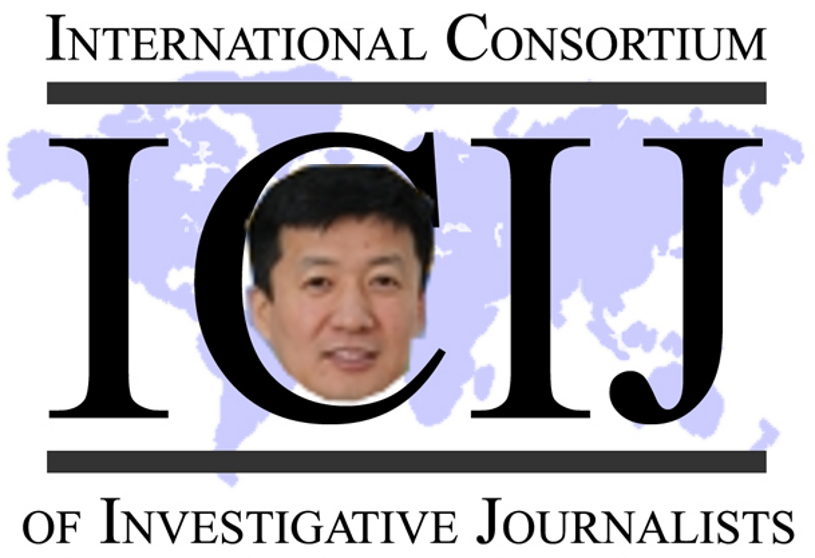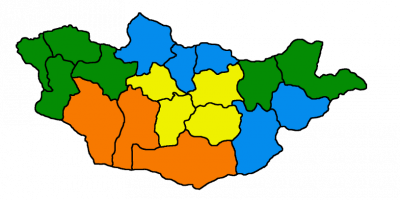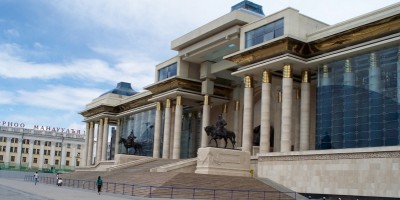The International Consortium of Investigative Journalists published a report today that may touch off another crisis surrounding the Oyu Tolgoi project. It has come to light that Deputy Speaker of Parliament S. Bayartsogt has maintained a secret Swiss account for an offshore company registered in the British Virgin Islands with as much USD 1 million (reports here and here).
Mr. Bayartsogt was the Minister of Finance when the Oyu Tolgoi (OT) stability agreement was signed in October 2009, and in November of last year independent MP S. Ganbaatar challenged Mr. Bayartsogt to a nationally televised debate on the stability agreement and the OT project. These two men have become the public faces of the anti-OT and pro-OT crowds, respectively. This news about the account is a bombshell, and I presume PM Altankhuyag’s government and Rio Tinto will in their own separate ways try to get ahead of this story and try to distance themselves from Mr. Bayartsogt as quickly as possible. Here are some contextual points to keep in mind as the story unfolds.
Mr. Bayartsogt was a Member of Parliament and the Minister of Finance from 2008-2012 in the grand coalition government initially formed by MPRP Prime Minister S. Bayar. He is currently the Deputy Speaker of Parliament and a member of the majority Democratic Party (DP). His direct involvement in the OT stability agreement negotiations, signature on the final document, and high-ranking position in parliament have made him an obvious political target for those displeased with the current agreement. There is no doubt that he had great influence in the shape of the agreement, but it is also important to remember that he was a member of a junior party in a coalition government at the time. His influence was likely constrained by many political factors, not least of all that the prime ministers during his tenure were members of the opposing party. There is a tendency in the local political discourse to smooth over the chaotic messiness of Mongolia’s democracy by formulating convenient conspiracies and assigning superhuman influence to particular individuals. However, in this case it is hard to see how Mr. Bayartsogt can be implicated in doing wrong with regards to the OT agreement without dragging down with him the MPRP (now MPP) leadership and the DP leadership that were also members of that government. Mr. Bayartsogt’s scandal makes others in the current government, in particular PM Altankhuyag who was Deputy Prime Minister under the previous coalition government, politically vulnerable.
The revelation that Mr. Bayartsogt kept an offshore account at this point is in itself only a potential violation of local anti-corruption disclosure rules and tax laws. As the Guardian newspaper notes here, having an offshore account is not necessarily evidence of wrongdoing (violations of local laws notwithstanding). It is just a highly suspicious activity. If the current government is truly serious about combating corruption, even the perception of corruption, then it is hard to see how Mr. Bayartsogt can keep his post without tarnishing the government and the rest of his party.
But, Mr. Bayartsogt’s political future is less important than what his fall may mean in the on-going dispute between the government and Rio Tinto. Mr. Bayartsogt stood before the country on national television in the fall and attempted to persuade sceptics to trust that the OT project was good for Mongolia. This bombshell has exploded in the middle of an already politically tense situation, and this is like ‘birthers’ in the US suddenly learning that Hawaii may actually be a protectorate of Indonesia. It is the ultimate vindication of sceptics’ distrust and suspicions about OT no matter how circumstantial or tenuous the evidence may be. The reaction of sceptics like Mr. Ganbaatar seem easy to predict going forward.
However, over the coming days as this plays out in the local media, I will be watching to see how the government and Rio Tinto react. They have different yet overlapping incentives to circle the waggons together and to sacrifice Mr. Bayartsogt by downplaying his importance and influence. The government has been sending signals over the last few weeks that it is interested in putting the most recent dispute behind it, and this scandal will potentially create another hard to control flare up if not handled properly. Obviously this is not good news for Rio Tinto, because the stink of Mr. Bayartsogt’s scandal will easily cling to the OT project. But, I also don’t see an upside to the government taking advantage of this situation in the continuing negotiations. As I noted above, many members of the government are also vulnerable to having the stink stick to them as well. This holds true for the opposition MPP which dominated the last government. The path to adequate damage control seems to be Mr. Bayartsogt falling on his own sword and resigning, while at the same time advocates for OT argue that Mr. Bayartsogt’s scandal is unrelated to OT and that ultimately his overall influence has always been limited by the political reality of multi-party democracy. Two coalition governments, after all, under MPP and DP leadership have overseen the project to-date. Nevertheless, it is a potential public relations mess for the government and Rio Tinto, and it presents another significant challenge in an already strained relationship.
Here are some links with helpful background information:
International Consortium of Investigative Journalists method for the report – http://www.icij.org/offshore/how-icijs-project-team-analyzed-offshore-files
Mr. Bayartsogt’s Official Bio – http://www.parliament.mn/who?type=2&cid=10
PM N. Altankhuyag’s Official Bio – http://www.parliament.mn/who?type=3&cid=13
The Mongolist post on the debate between Mr. Bayartsogt and Mr. Ganbaatar – http://www.themongolist.com/blog/parliament/36-the-debate-november-23-2012.html
Thanks to Julian Dierkes over at Mongolia Today for bringing this story to my attention with a flurry of tweets this morning.



